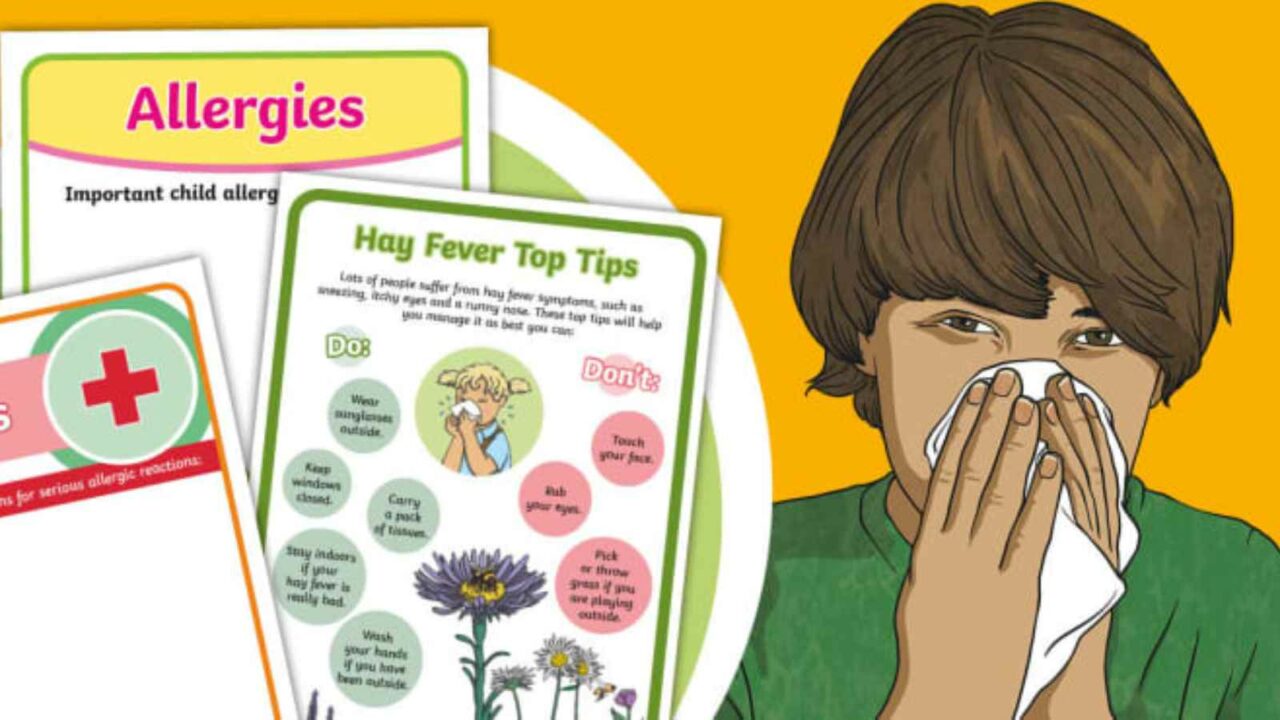World Allergy Awareness Day 2022 is a time to reflect on the advances made in allergy management and the challenges that still exist. It’s also an opportunity to educate others about the prevalence of allergies and what can be done to prevent them.
What is World Allergy Awareness Day?
World Allergy Awareness Day is an annual event organized by the World Allergy Organization (WAO) to increase public awareness of allergies and their global impact. The day also serves as a platform to advocate for better allergy management and care. This year’s theme is “Allergies: A Global Perspective” and will focus on the prevalence of allergies around the world and the need for better global collaboration to manage this growing health problem.
National Pregnancy and Infant Loss Remembrance Day 2022 (US)
WORLD ALLERGY AWARENESS DAY DATES
| Year | Date | Day |
|---|---|---|
| 2022 | October 16 | Sunday |
| 2023 | October 16 | Monday |
| 2024 | October 16 | Wednesday |
| 2025 | October 16 | Thursday |
| 2026 | October 16 | Friday |
The Different Types of Allergies
There are many different types of allergies that people can suffer from. The most common type is hay fever, which is an allergy to pollen. Other common allergies include pet allergies, food allergies, and dust allergies.
People with hay fever may experience symptoms such as sneezing, a runny nose, and watery eyes. These symptoms can be mild or severe, and they may occur only during certain times of the year when pollen levels are high.
Pet allergies can cause similar symptoms to hay fever, but they may also include itching, redness, and swelling. People with food allergies may experience nausea, vomiting, diarrhea, and abdominal pain. Dust allergies can cause coughing, wheezing, and difficulty breathing.
Allergies can be treated with medication, but the best way to prevent them is to avoid exposure to the things that trigger them. If you have hay fever, for example, you should stay indoors on days when pollen levels are high. If you have a pet allergy, you should keep your pet out of your home or at least away from your bedroom. And if you have a dust allergy, you should try to limit your exposure to dust by using a dust mask or air purifier.
National Latino AIDS Awareness Day 2022 (US): Date, Importance and Significance
The Symptoms of an Allergic Reaction
There are a few different types of allergic reactions that can occur, and the symptoms will vary depending on the type of reaction. The most common type of reaction is called an acute reaction, and it usually happens shortly after exposure to the allergen. Symptoms of an acute reaction include:
-Hives or welts
-Itching
-Swelling of the face, lips, tongue, or throat
-Wheezing or difficulty breathing
-Nausea or vomiting
-Diarrhea
-Dizziness or lightheadedness
If you have any of these symptoms, it’s important to seek medical help right away as they can potentially be life-threatening. Another type of allergic reaction is called a delayed reaction, and it usually occurs a few hours to a few days after exposure to the allergen. The symptoms of a delayed reaction are typically milder than those of an acute reaction and may include:
-Rash
-Itching
-Swelling
-Redness
If you experience any of these symptoms after being exposed to an allergen, it’s important to see your doctor so they can properly diagnose you and determine the best course of treatment.
How to Treat an Allergic Reaction
If you have an allergy, you know that reactions can range from a minor annoyance to a potentially life-threatening emergency. No matter how severe your allergies are, it’s important to be prepared for an allergic reaction and know how to treat it.
The first step in treating an allergic reaction is to identify the trigger. Once you know what you’re allergic to, you can take steps to avoid exposure to that substance. If you can’t avoid exposure, or if you don’t know what triggered the reaction, then the best thing to do is take measures to relieve the symptoms.
There are a number of over-the-counter and prescription medications that can be used to treat an allergic reaction. Antihistamines are often the first line of defense against allergies, and they can be taken orally or applied topically. For more severe reactions, corticosteroids may be necessary. These drugs can help reduce inflammation and swelling caused by an allergic reaction.
In some cases, an EpiPen may be needed to treat a severe allergic reaction. An EpiPen is a device that injects a dose of epinephrine into your body. Epinephrine is a hormone that helps relieve symptoms of anaphylaxis, which is a severe and potentially life-threatening type of allergic reaction.
If you have allergies, it’s important to talk to your doctor about your risks and how to best manage them.
World Food Day 2022: Date, History and Goals of the day
Preventing Allergic Reactions
When most people think of allergies, they think of hay fever, hives, or asthma. But allergies can also cause life-threatening reactions known as anaphylaxis. Anaphylaxis is a sudden, severe allergic reaction that can occur within minutes of exposure to an allergen. Symptoms include difficulty breathing, dizziness, and swelling of the throat. If not treated immediately, anaphylaxis can lead to death.
There are many things you can do to prevent allergic reactions:
• Know your triggers. If you are allergic to certain foods, medications, or insects, avoid them.
• Wear a medical ID bracelet or necklace that says you have an allergy. This will help others know what to do in case of an emergency.
• Carry epinephrine with you at all times. Epinephrine is a medication that can stop anaphylaxis. If you are at risk for anaphylaxis, your doctor will prescribe it for you.
• Be prepared for emergencies. Teach your family and friends how to use epinephrine and where it is stored. Make sure everyone knows where the nearest hospital is located.
World Allergy Awareness Day 2022: Conclusion
As we wrap up World Allergy Awareness Day, we want to thank everyone who participated and helped to spread the word about allergies and their impact on our lives. We hope that by raising awareness, we can help people better understand how to manage their allergies and live happier, healthier lives.


















